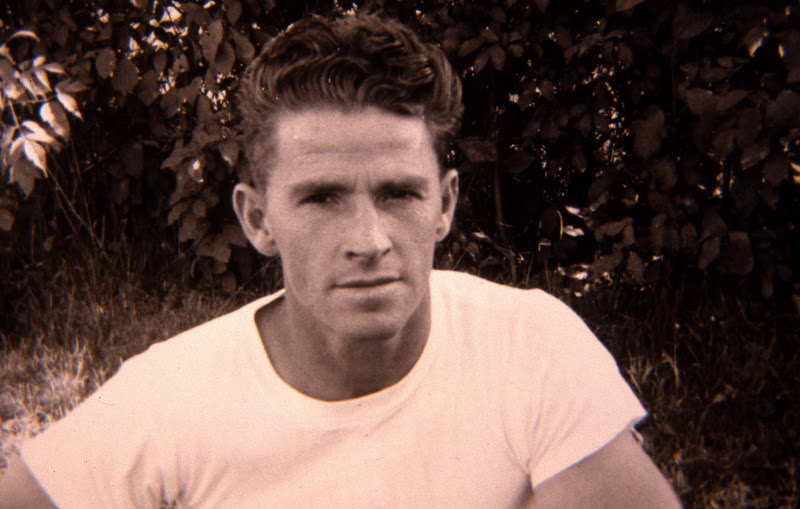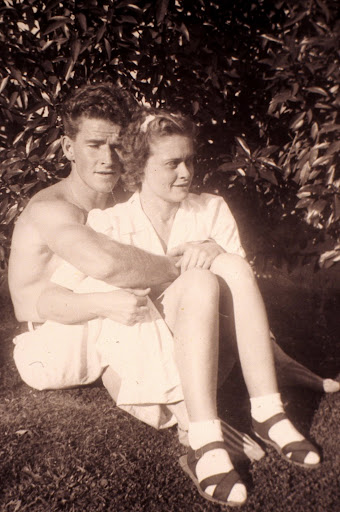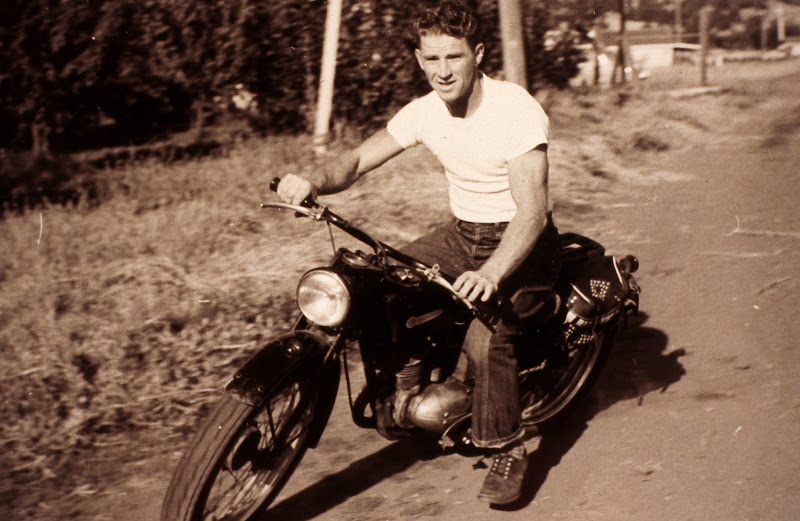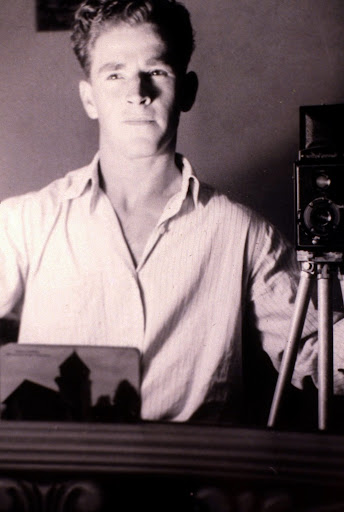This is part 7 of my notes on Augustine’s Confessions.
The Remnants of Augustine’s Materialism (7.1.1-7.2.3)
Augustine was but slowly working his way out of the materialism that remained from his days as a Manichee. Specifically, he knew that God was incorruptible – he couldn’t imagine a God that wasn’t – but he couldn’t imagine how God couldn’t be physical in some sense. Augustine simply couldn’t imagine a God who existed, but didn’t exist physically. That said, Augustine was well aware of the problems associated with the Manichaean materialism, including a dilemma proposed by his friend Nebridius. Basically, Nebridius’ point is that the Manichaean explanation for human beings has a hole in it. The world as we know it is a mixture of divine substance corrupted by exposure to matter. But how can this be, if God is truly immutable and incorruptible? The whole idea of God having to fight evil seems to imply that evil could do some harm to God, which would mean that God is not incorruptible – which was anathema to Augustine, as soon as he had put the question to himself clearly.
I should note that it’s precisely this question about the mode of God’s existence that Augustine is driving at back in book 1, during the long series of rhetorical questions with which he opens his work.
3. Since, then, thou dost fill the heaven and earth, do they contain thee? Or, dost thou fill and overflow them, because they cannot contain thee? And where dost thou pour out what remains of thee after heaven and earth are full? Or, indeed, is there no need that thou, who dost contain all things, shouldst be contained by any, since those things which thou dost fill thou fillest by containing them? For the vessels which thou dost fill do not confine thee, since even if they were broken, thou wouldst not be poured out. And, when thou art poured out on us, thou art not thereby brought down; rather, we are uplifted. Thou art not scattered; rather, thou dost gather us together. But when thou dost fill all things, dost thou fill them with thy whole being? Or, since not even all things together could contain thee altogether, does any one thing contain a single part, and do all things contain that same part at the same time? Do singulars contain thee singly? Do greater things contain more of thee, and smaller things less? Or, is it not rather that thou art wholly present everywhere, yet in such a way that nothing contains thee wholly?
It’s quite interesting to note that the questions which at one point kept him from the faith have here become rather a means for deepening it, a source of praise and wonder, rather than a lament.
- Have you ever run into a Christian doctrine which, when you first heard it, seemed awkward and unpleasant, only to have it later become meaningful?
The Origin of Evil – Take 1 (7.3.4 – 7.5.7)
Augustine’s initial attempts to think through the problem of evil from a Christian perspective kept running up against the idea that our will didn’t appear to be completely free. He frequently found himself doing things that (at least in his better moments) he didn’t want to do: and he was mystified as to why that conflict would be present in him. How did it get there? The Manichaean answer – that human beings were made up of both divine and diabolical stuff – was no longer sufficient, but he didn’t have any better alternative.
Furthermore, his materialism exacerbated any attempt to find an answer. If both God and evil have a substantial, spatial existence, it’s quite impossible to maintain that God is truly good and all powerful. It’s also interesting to note that Augustine still seemed (at this stage) to think of evil as somehow originally bound up with matter: “Was there some evil matter out of which he made and formed and ordered [the world], but left something in his creation that he did not convert into good? But why should this be? Was he powerless to change the whole lump so that no evil would remain in it, if he is the Omnipotent?” This appears to be a remnant of his Manichaeism, which he hadn’t yet thoroughly purged from his thinking.
Astrology (7.6.8 – 7.6.10)
It seems like it took Augustine an astonishingly long time to grasp the principal problem with astrology: people born at exactly the same time have dramatically divergent fates. Not sure how that could have escaped his notice for so long.
Neoplatonism (7.7.11 – 7.10.16)
In the midst of this materialistic confusion, Augustine discovered the books of the Neo-Platonists (probably the Enneads of Plotinus, though we’re not sure), and his world was turned upside down. The Neo-Platonists had a simple argument against strict materialism: truth did not have a physical, spatial existence, yet who could doubt its existence? The same was true of thought, of love, and many other abstract concepts. The genius of this particular line of thought is that it tried to look at God in much the same way: all ideas and concepts can be subsumed under higher concepts, until you get to the one concept that holds all others, and that is God. Once Augustine found the Neo-Platonists, his materialism was gone forever.
Yet for all the influence that these philosophers had on him (and it seems that he devoured whatever of their writings he could get his hands on), he couldn’t give his heart to them: for they had nothing to say about Jesus. Augustine still wasn’t sure who Jesus was – but he was sure that he was important. And eventually it couldn’t help but strike him that everything he found valuable in the Neo-Platonists was itself already in Scripture; and that Scripture contained much more that attracted him.
And therein I found, not indeed in the same words, but to the selfsame effect, enforced by many and various reasons that “in the beginning was the Word, and the Word was with God, and the Word was God. The same was in the beginning with God. All things were made by him; and without him was not anything made that was made.” That which was made by him is “life, and the life was the light of men. And the light shined in darkness; and the darkness comprehended it not.” Furthermore, I read that the soul of man, though it “bears witness to the light,” yet itself “is not the light; but the Word of God, being God, is that true light that lights every man who comes into the world.” And further, that “he was in the world, and the world was made by him, and the world knew him not.” But that “he came unto his own, and his own received him not. And as many as received him, to them gave he power to become the sons of God, even to them that believed on his name” --this I did not find there.
In the end, Augustine was willing to borrow from the Neo-Platonists and other philosophers whenever he found them helpful, which was not infrequently. After all, “I had sought strenuously after that gold which thou didst allow thy people to take from Egypt, since wherever it was it was thine.”
One very interesting result that came from reading these philosophers is that Augustine appears to have had a mystical vision of some sort. “Being admonished by these books to return into myself, I entered into my inward soul, guided by thee… When I first knew thee, thou didst lift me up, that I might see that there was something to be seen, though I was not yet fit to see it. And thou didst beat back the weakness of my sight, shining forth upon me thy dazzling beams of light, and I trembled with love and fear.”
The Origin of Evil – Take 2 (7.11.17 – 7.16.22)
Armed with a variety of concepts borrowed from Neo-Platonic philosophy, Augustine made a second run at the problem of evil, this time with much more satisfactory results. Here Augustine makes his first profound contribution to Christian thought: all that is, is good, precisely because it is. Of course, it can be corrupted, either naturally, by returning to a state of nonbeing, or unnaturally, through evil. But to the extent that it is at all, it is good. With respect to Christian theology, this is a breakthrough quite as important as Newton and Leibnitz’ discovery of the integral calculus: it really is that big, and has had an impact on Christian theology every bit as large as calculus has had on mathematics and physics.
Augustine’s argument that being itself is good is interesting and subtle.
And it was made clear to me that all things are good even if they are corrupted. They could not be corrupted if they were supremely good; but unless they were good they could not be corrupted. If they were supremely good, they would be incorruptible; if they were not good at all, there would be nothing in them to be corrupted. For corruption harms; but unless it could diminish goodness, it could not harm. Either, then, corruption does not harm--which cannot be--or, as is certain, all that is corrupted is thereby deprived of good. But if they are deprived of all good, they will cease to be. For if they are at all and cannot be at all corrupted, they will become better, because they will remain incorruptible. Now what can be more monstrous than to maintain that by losing all good they have become better? If, then, they are deprived of all good, they will cease to exist. So long as they are, therefore, they are good. Therefore, whatsoever is, is good.
In other words, Augustine says, imagine an object, any object. Since I’m sitting on one, imagine a chair. And imagine all the goodness removed that chair through corruption, like a spiritual refrigerator: imagine it reaching a state of “absolute zero”, so that no good remains in that chair at all. Now, if all good has been removed from this chair, does the chair still exist? If it does still exist, but all good has been removed from it, this means that it can suffer no further corruption, which means that it is incorruptible. But for Augustine, this is absurd, because incorruptibility is not just a good, it’s the good. How could something that has had all good removed from it participate in the very best good of all? We must conclude, therefore, that if our chair has had every ounce of its good removed, it must also have had every ounce of its existence removed. In other words, existence is as necessarily connected to goodness in Augustine’s account, as energy is connected to matter in Einstein’s. And both connections are equally radical and world-shaking.
And of course, this was the (final) end of Augustine’s Manichaeism. The Manichees imagined evil as a substance with an independent, autonomous existence. Augustine now knew it for what it was: a parasite, entirely dependent on God’s sufferance, at most borrowing existence from God’s good creation.
One of the implications of this is that there is some good in all creation, even the “lower” parts that human beings find less congenial (such as snakes and mosquitoes). The fact that we don’t like them shows partially that our vision is finite, but also that our taste is corrupt. The point is that all things in creation harmonize with each other.
Holding Fast to Christ (7.17.23 – 7.21.27)
Despite the mystical vision of the intellect which Augustine had been granted, he found that he was unable to sustain that level of engagement with God.
And thus with the flash of a trembling glance, it arrived at that which is. And I saw thy invisibility [invisibilia tua] understood by means of the things that are made. But I was not able to sustain my gaze. My weakness was dashed back, and I lapsed again into my accustomed ways, carrying along with me nothing but a loving memory of my vision, and an appetite for what I had, as it were, smelled the odor of, but was not yet able to eat.
Specifically, Augustine says, he was unable to “connect” with God because his faith in Jesus was, at best, unformed. Jesus is the one is the mediator between God and man, the one who gives us access to God. However, Augustine didn’t yet understand this. He thought Jesus was merely a superlative human being, one who could show us the way to God, but not actually God. Against the Manichees, he had concluded that not only was Jesus’ body real, but also that Jesus was possessed of a human soul: for deciding and feeling are appropriate to the changeable human soul, not to God proper.
There’s an interesting note here in Alypius’ (initial) take on Catholic doctrine. He initially thought that Catholics taught that Jesus had a divine rather than a human soul, and he (quite rightly) disagreed with this, because it was clear that Jesus’ soul must have been human. However, it eventually became clear that the position with which he was disagreeing was not, in fact, the Catholic one, but rather that held by Apollinarius, who was declared a heretic. (The opposite heresy is that of Nestorianism, which holds that there are in fact two persons in Christ, not just two natures.)
The orthodox position is laid out in the Definition of Chalcedon:
Therefore, following the holy fathers, we all with one accord teach men to acknowledge one and the same Son, our Lord Jesus Christ, at once complete in Godhead and complete in manhood, truly God and truly man, consisting also of a reasonable soul and body; of one substance with the Father as regards his Godhead, and at the same time of one substance with us as regards his manhood; like us in all respects, apart from sin; as regards his Godhead, begotten of the Father before the ages, but yet as regards his manhood begotten, for us men and for our salvation, of Mary the Virgin, the God-bearer; one and the same Christ, Son, Lord, Only-begotten, recognized in two natures, without confusion, without change, without division, without separation; the distinction of natures being in no way annulled by the union, but rather the characteristics of each nature being preserved and coming together to form one person and subsistence, not as parted or separated into two persons, but one and the same Son and Only-begotten God the Word, Lord Jesus Christ; even as the prophets from earliest times spoke of him, and our Lord Jesus Christ himself taught us, and the creed of the fathers has handed down to us.
As Augustine sought more to understand who Jesus was, he was introduced to Paul’s writings, which was another turning point. Everything that he found attractive in the teaching of the Neoplatonists was present in Paul, along with a great deal more.






